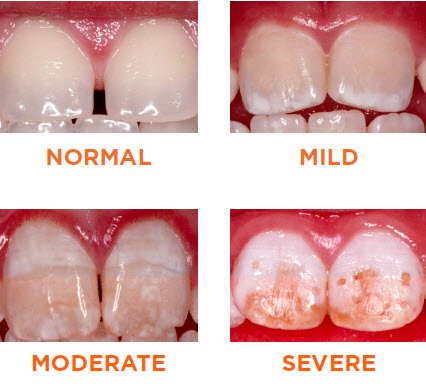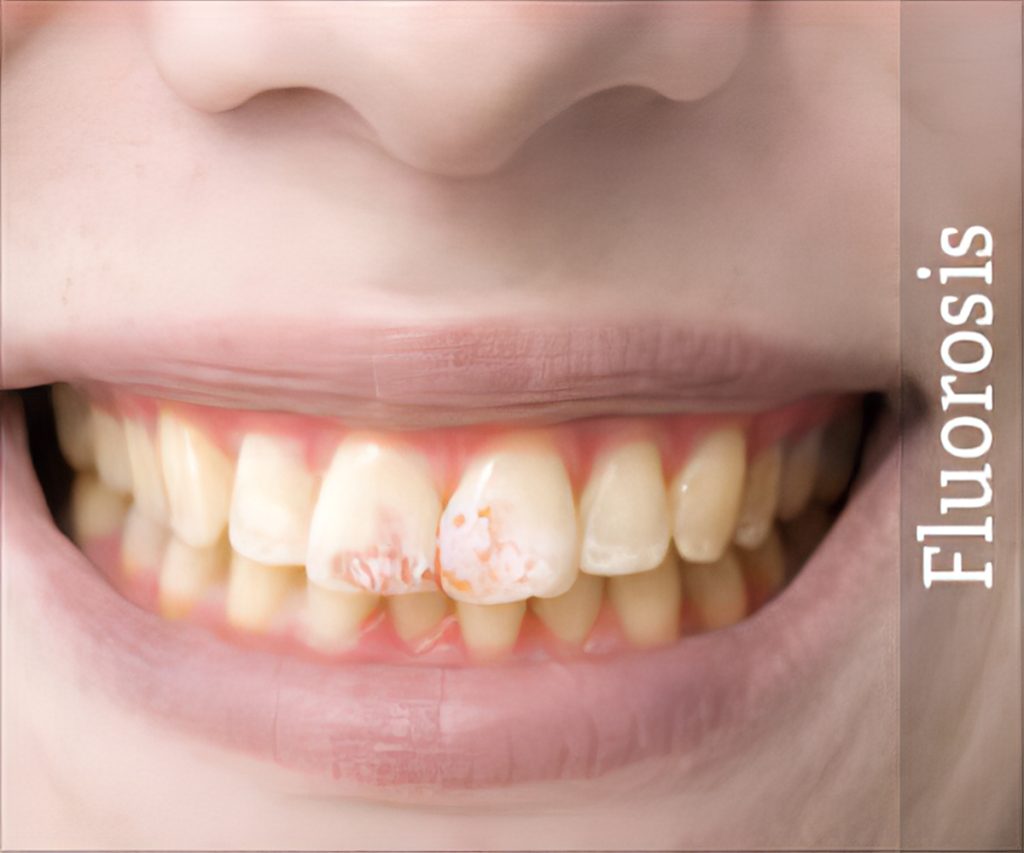Fluoride Overdose and its symptoms in a human body
Fluoride Deficiency

Fluoride is one of the most essential minerals required for the human body to improve/maintain health of bones and teeth. Its deficiency could be common due to insufficient amount of fluoride in the body or due to its limited utilization. A low amount of fluoride could create a condition for bacteria found in plague. This allows them to produce acid that affects the tooth enamel. There are few symptoms associated with low level of fluoride in the body such as
- cavities in teeth
- brittle or weak bones
- decaying of teeth
- weakening of tooth enamel
- osteoporosis
- fractured hips
What is Fluoride Supplement?
- Fluoride is a kind of mineral that is naturally available in a number of natural food products as well as in dietary supplements. These supplements are synthetic medications that consist of beneficial amounts of fluoride along with other assisting medical agents that inhibits or overturn the onset and development of tooth decay as well as helps in formation of new bones.
- Generally, fluoride deficiency must not be common due to its wide availability in natural as well as manmade dental products especially for dental care. However, people lacking Fluoride intake could consume supplements of this mineral which are generally available in the market.
- These supplements are available in different forms such as drops, tablets, chewing gums, Lozenges, varnishes, mouth rinses, tooth paste, gel. foam, fluoridated water, etc. An individual must consume such supplements based on their diet, age group, and medical conditions that may interfere with the following medication.
Fluoride overdose in Human body
As a limited amount of fluoride is associated with number of benefits especially for bones and teeth, excess consumption of fluoride generally results in a number of medical health issue such as
- Skeletal Fluorosis – This could result in pain or damage to the bones due to less elasticity and more hardening of bones that increases the risk of fractures.
- Neurological problems – According to several research studies, higher levels of fluoride was associated with lower IQ in children between 6-12 years old.

- Dental fluorosis – excess exposure of fluoride during the developing stage of teeth i.e. childhood could result in dental fluorosis which could be identified by discoloration of teeth.
- Thyroid problems – More excess of fluoride might also result in parathyroid gland damage. This causes hyperparathyroidism, a condition which could displace the calcium concentration from bone structure into the blood, thereby increasing the risk of bone fracture.
There are also several other medical condition that could be developed due to excess exposure of fluoride such as:
- reproductive issue
- several bone and joints disease or disorders
- several skin problems such as acne
- other thyroid disorder
- high blood pressure
- heart failure
- myocardial damage
- cardiac insufficiency
- other cardiovascular disorders
There is also a condition called Fluoride poisoning in which very high exposure of fluoride is found which results in several serious health conditions such as:
- Excess production of saliva
- muscle spasm
- abdominal pain
- vomiting
- nausea
- seizures
Such a high level is generally not caused by drinking usual fluoridated water but an accidental contamination of water due to explosion or specific industrial fire could result in such acute fluoride level. It is advisable to consult a health professional immediately in case any of such symptoms are identified by an individual and discuss all the possible pros and cons associated with supplements before consuming them.
REFERENCES:
- https://www.verywellhealth.com/fluoride-health-benefits-4570994
- https://www.webmd.com/vitamins/ai/ingredientmono-1068/fluoride
- https://www.eufic.org/en/vitamins-and-minerals/article/fluoride-foods-functions-how-much-do-you-need-more
- https://www.mouthhealthy.org/en/az-topics/f/fluoride
- https://www.medindia.net/patients/patientinfo/fluorosis.htm
- https://www.healthychildren.org/English/healthy-living/oral-health/Pages/Fluorosis-Facts-Information-Parents-Caregivers.aspx
For more details, kindly visit below.

